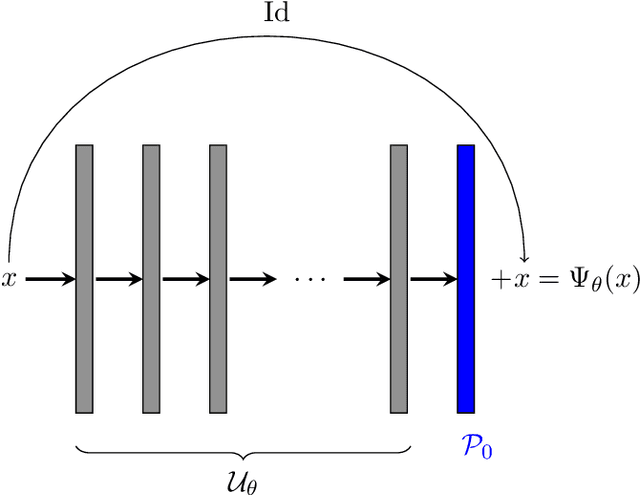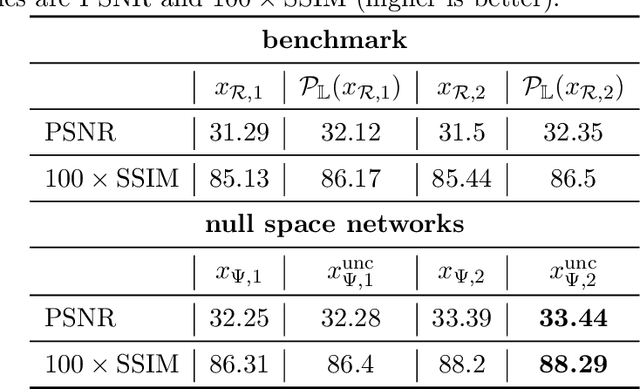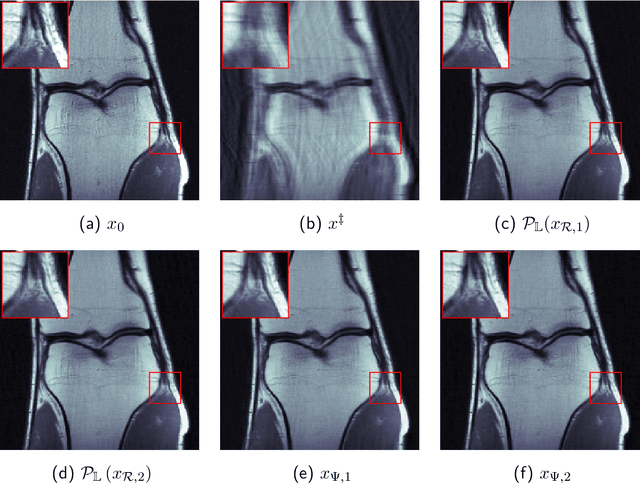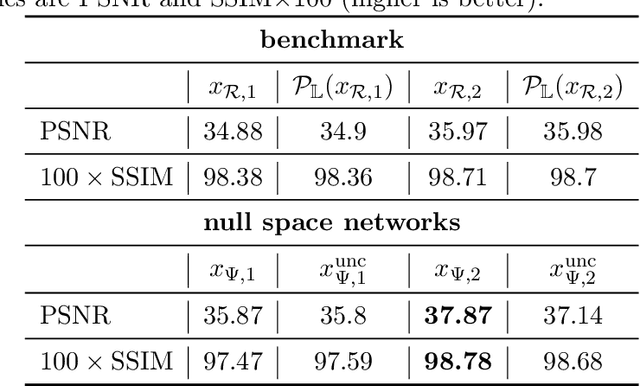Simon Göppel
Uncertainty-Aware Null Space Networks for Data-Consistent Image Reconstruction
Apr 14, 2023



Abstract:Reconstructing an image from noisy and incomplete measurements is a central task in several image processing applications. In recent years, state-of-the-art reconstruction methods have been developed based on recent advances in deep learning. Especially for highly underdetermined problems, maintaining data consistency is a key goal. This can be achieved either by iterative network architectures or by a subsequent projection of the network reconstruction. However, for such approaches to be used in safety-critical domains such as medical imaging, the network reconstruction should not only provide the user with a reconstructed image, but also with some level of confidence in the reconstruction. In order to meet these two key requirements, this paper combines deep null-space networks with uncertainty quantification. Evaluation of the proposed method includes image reconstruction from undersampled Radon measurements on a toy CT dataset and accelerated MRI reconstruction on the fastMRI dataset. This work is the first approach to solving inverse problems that additionally models data-dependent uncertainty by estimating an input-dependent scale map, providing a robust assessment of reconstruction quality.
Feature reconstruction from incomplete tomographic data without detour
Feb 22, 2022



Abstract:In this paper, we consider the problem of feature reconstruction from incomplete x-ray CT data. Such problems occurs, e.g., as a result of dose reduction in the context medical imaging. Since image reconstruction from incomplete data is a severely ill-posed problem, the reconstructed images may suffer from characteristic artefacts or missing features, and significantly complicate subsequent image processing tasks (e.g., edge detection or segmentation). In this paper, we introduce a novel framework for the robust reconstruction of convolutional image features directly from CT data, without the need of computing a reconstruction firs. Within our framework we use non-linear (variational) regularization methods that can be adapted to a variety of feature reconstruction tasks and to several limited data situations . In our numerical experiments, we consider several instances of edge reconstructions from angularly undersampled data and show that our approach is able to reliably reconstruct feature maps in this case.
 Add to Chrome
Add to Chrome Add to Firefox
Add to Firefox Add to Edge
Add to Edge